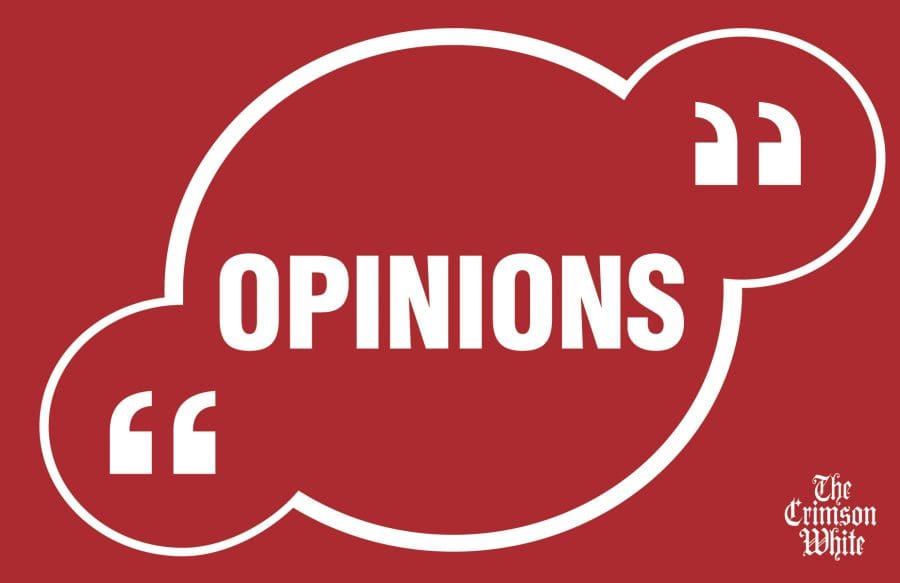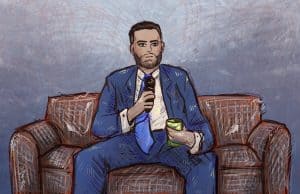Opinion: Say it with me, President Bell: I am responsible
September 2, 2020
There is a lot of victim blaming going on in America right now. While President Trump campaigns on the worn out race-baiting promise of law and order (read: harass, prosecute and murder victims of racial injustice for speaking out against…racial injustice), administrators at The University of Alabama are spinning a narrative that centers blame on students for the spread of COVID-19 on our campus this fall. In letters sent out to UA students, faculty and staff, President Stuart Bell took no responsibility for the over 1,000 cases of COVID-19 that have been reported in our community, and he instead touted the number of hours his administration has spent preparing for the fall semester while blaming the increase in cases on students gathering at bars and parties.
To enforce the weak return plan and maintain the idea that it is students who are to blame instead of poor policy, the University has called in the police. The threat of police action to enforce UA guidelines on and off campus is frightening. It creates a precedent for authorities to use the power of the state police to enforce the policies of a public university president. It is impossible not to see this threat as, if not racially motivated, at least racially insensitive. Leaving the enforcement of UA guidelines up to an institution that notoriously defends white supremacy and actively harms Black citizens is a sign that the administration fears it is losing control over the narrative surrounding COVID-19 on campus. It is also an unnerving echo of President Trump’s use of the military to control people gathering in support of the Black Lives Matter movement around the country.
What is further disconcerting is just how far down the chain of command the myth of administrative invulnerability goes. Joseph Messina, the dean of the College of Arts and Sciences recently sent an email to faculty, to which a note from a concerned mother was appended. The mother was complaining that her daughter—who had been excited about the prospect of attending classes in a face-to-face environment—had been cheated out of a true collegiate education when one by one her classes were moved online. “I am extremely disappointed that the professors all chose distance learning,” the mother wrote. “Instead of being excited for her first day of school, my daughter sent me a very sad picture of her sitting in front of her computer watching a class.” To this, the dean wrote, “I don’t know if this occurred in A&S, but [teachers moving their classes online] shouldn’t be happening at all, unless [their request] is documented and approved.”
It is hard not to see this as a threat, not only to the faculty who are making tough decisions for their own safety as well as for the safety of their students, but to department chairs who have discretion over approving teacher requests to move their classes online. According to UA policy, teacher requests should only be approved if the teacher is high-risk according to the Centers for Disease Control and Prevention. The CDC’s list does not take into account issues like mental health, family medical history, blood type, the fact that COVID-19 is known to produce long-term lung damage even in those not at high risk (and some people, like athletes or musicians, rely on their lungs for their livelihoods) or a number of other very real concerns. So instead of allowing human compassion and safety to be the guiding force in decision-making efforts, the dean shifts blame for any policy shortcomings down the administrative ladder.
The dean’s response begs a greater question: Why is he listening to one student’s mother more closely than the faculty, staff and students whose health should be his priority? It is not insignificant that this mother is from out of state, and that she therefore likely pays the high tuition on which the University depends. The message is clear: keep our tuition payers happy even if it puts you, your students, your family and your colleagues at risk. What happens to you if you disobey is appropriately unclear: that is how to keep a population in fear.
Behind all of this is an even greater question: Why is the university so insistent on keeping classes in-person? Surely tuition plays a role here, but so does the protection of the “Alabama lifestyle,” the preservation of which has become a key point in President Bell’s frequent “Message From the President” newsletters. The implicit threat is that if you, student, do not follow our rules, you will destroy the cultural institution of our campus. If this does not sound like familiar rhetoric, you have not been paying attention to the Trump Administration’s campaign platform and its underlying narrative driven by white fragility. Of course the lifestyle that The University of Alabama is trying to preserve is precisely the one that is causing the spread of COVID-19 on campus: the University was recently ranked the No. 1 Party School in America by the Princeton Review.
Even from an academic perspective, the argument that in-person classes are pedagogically superior to online classes is untenable. The University already has a robust degree-granting online platform in place. If they are willing to certify these educational opportunities with a UA diploma, surely they cannot be suggesting that a temporary online platform is educationally inferior, especially to an in-person experience hampered by masks, awkwardly spaced out desks, increased anxiety, packed hallways and shared bathrooms.
In case you are doubtful of the connection I am making, as the number of COVID-19 cases on campus climbs with alarming speed, we received this familiar tidbit from our Faculty Senate President: “The large increase in positive student tests is primarily due to the University’s effort to test as many students as possible.” In addition, there is the fact that teachers are being threatened with a (probably indefensible) HIPAA violation for informing their students about a fellow classmate who tested positive for COVID-19, even anonymously. We have been assured that the classroom environment is 100% safe, and that if all the rules are being followed, there is no need to tell our students about potential exposure or move our classes online. It is a convenient way for the administrators to minimize evidence of the true nature of COVID’s spread, and it allows them to continue claiming with full confidence that no spread of cases has been traced to the classroom, again protecting administrative invulnerability.
All of this goes to say that with our President abdicating responsibility for anything related to the handling of the pandemic, our local leaders need to step up. They need to not only protect those whose lives they oversee instead of pushing conservative fiscal policy, but take full responsibility for the things that happen under their watch, especially when those things are within their control. Can Stuart Bell go around Tuscaloosa with a mask and a spray bottle of sanitizer breaking up every student gathering? Of course not. However, could he have foreseen that promoting a culture of partying and social togetherness on campus and attempting to preserve that culture at all costs would put the safety of our campus community at risk? Absolutely.
So say it with me, President Bell: I am responsible. I take responsibility for policies that have already sickened over a thousand people on our campus. I take responsibility for promoting the use of an armed and racist institution against UA students in order to abdicate responsibility for the failure of my plan. I take responsibility for implementing COVID-related disciplinary policies which will more adversely affect people from marginalized groups. I am learning from my mistakes, and I will aim to serve this community as a better leader in the future.
Saul Alpert-Abrams is an MFA candidate at the University of Alabama.










